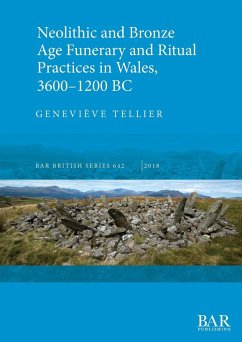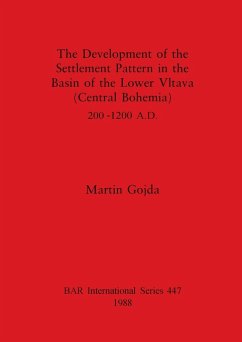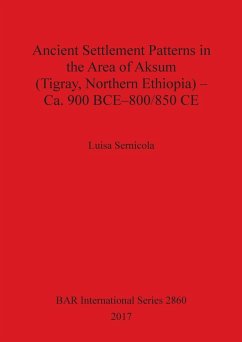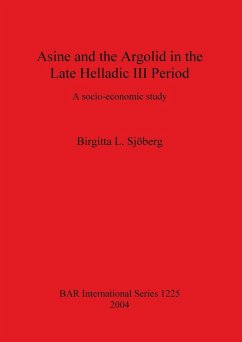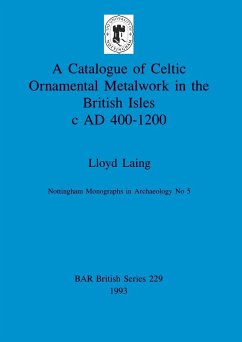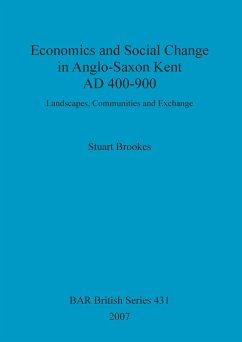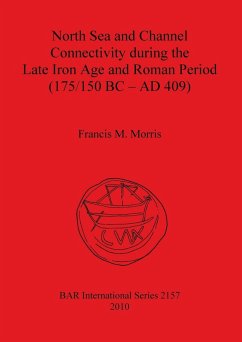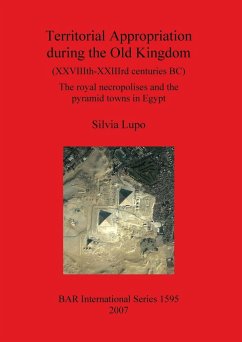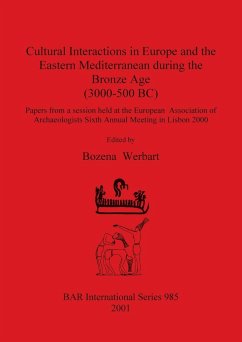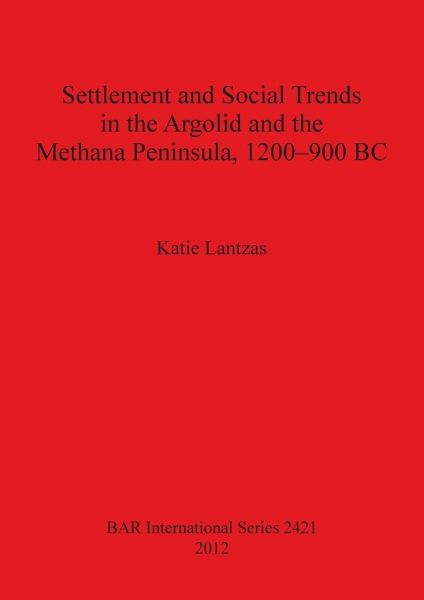
Settlement and Social Trends in the Argolid and the Methana Peninsula, 1200-900 BC
Versandkostenfrei!
Versandfertig in 1-2 Wochen
70,99 €
inkl. MwSt.

PAYBACK Punkte
35 °P sammeln!
This research centres on the ideology and socio-economic practices of the communities in the Argolid and the Methana Peninsula (Peloponnese, Greece) that existed during approximately 1200 BC through 900 BC. A thorough examination of mortuary practices, the built environment, ceramic material and metal objects demonstrate that during this transitional period an ideological shift took place alongside complex socio-economic developments. An analysis of the material evidence indicates the active formation of a new ideology and socio-economic practices that privileged the individual and the domesti...
This research centres on the ideology and socio-economic practices of the communities in the Argolid and the Methana Peninsula (Peloponnese, Greece) that existed during approximately 1200 BC through 900 BC. A thorough examination of mortuary practices, the built environment, ceramic material and metal objects demonstrate that during this transitional period an ideological shift took place alongside complex socio-economic developments. An analysis of the material evidence indicates the active formation of a new ideology and socio-economic practices that privileged the individual and the domestic unit over the larger corporate group. After presenting the geographic and research background for these two regions, the author discusses the concept of the Greek"Dark Ages" and analyses the mortuary evidence and built environment, demonstrating that, following the collapse of the Mycenaean palatial administration, the remaining communities maintained and developed practices that promoted the individual or the domestic unit. Analysis of specific examples from the ceramic material and metal objects dating to this period are used to discuss specific activities, such as production and exchange. Evidence from this data illustrates that these activities had, in all probability, taken place outside the direct control of the Mycenaean palatial administration and continued without substantial interruption throughout this period. This re-appraisal of the material culture dating from the Late Helladic IIIB 2 through Early Geometric period combines new theoretical approaches to collapsed societies and attempts to reconstruct the ideology and socio-economic practices of Iron Age communities in the Argolid and the Methana Peninsula.



